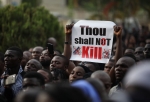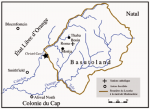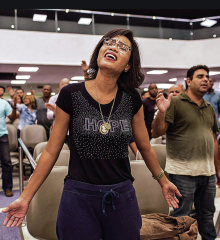
From industrial policy and nuclear power to "strategic autonomy" and the 35-hour week, the 2020s are popularising many French instincts about world affairs and the state.
Thank you Jeremy Cliffe for this stimulating analysis (NewStatesman)
By continuing your visit to this site, you accept the use of cookies. These ensure the smooth running of our services. Learn more.

From industrial policy and nuclear power to "strategic autonomy" and the 35-hour week, the 2020s are popularising many French instincts about world affairs and the state.
Thank you Jeremy Cliffe for this stimulating analysis (NewStatesman)
 An international online conference from the Evangelical Studies Program at Baylor’s Institute for Studies of Religion, and co-sponsored by Baylor’s Truett Seminary
An international online conference from the Evangelical Studies Program at Baylor’s Institute for Studies of Religion, and co-sponsored by Baylor’s Truett Seminary
After a successful conference last year on the history of Evangelicals in Latin America, the Evangelical Studies Program at Baylor ISR will hold a conference on the history of Evangelicals and religious freedom. It will range over the period from the eighteenth century to the present and will have papers on many parts of the globe.
 Thanks to Ntabanyane S. K. Tseuoa (University of KwaZulu-Natal), a new light is shed on the interactions between the Paris Evangelical Mission and the people of the Basutoland (now in South Africa).
Thanks to Ntabanyane S. K. Tseuoa (University of KwaZulu-Natal), a new light is shed on the interactions between the Paris Evangelical Mission and the people of the Basutoland (now in South Africa).
This paper (2020) investigates how the Paris Mission acquired land in Basutoland upon the arrival of its missionaries in 1833 and in subsequent years. It also looks at changing notions of land and the missionaries' utilisation of it throughout their tenure in Basutoland. It explores how the Basuto as a people understood the possession of land vis-â-vis the European notion of buying and selling land as a commodity.
Grateful for the full-text access! Good work! But disappointed by the total lack of french-speaking research. A great deal of quality work has been done, particularly by Historian Jean-François Zorn, world-wide specialist of the Paris Evangelical Mission. None of this research is used here. Hey, English-speaking friends, using a bit of french should not be an option if you work on French missions!
 The advance of evangelical congregations in the Latin American religious scene is one of the most significant cultural transformations of the last decades.
The advance of evangelical congregations in the Latin American religious scene is one of the most significant cultural transformations of the last decades.
It is so because of the speed with which it has occurred, because of the important number of people involved and because of the depth with which it challenges the Catholic Church, one of the most emblematic institutions of the continent since the conquest.
In this paper, the authors analyze one of the areas in which this religious revolution is manifesting itself in three different countries: Brazil, Argentina and Uruguay.